
|
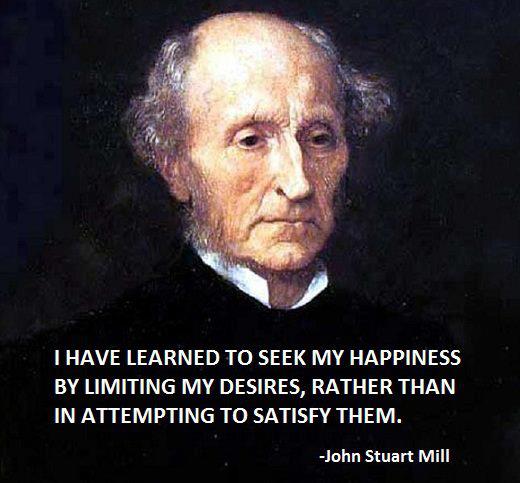
From the winter
of 1821 I had what might truly be called an object in life:
to be a Reformer.
My conception of my own
happiness was entirely identified with this object.
The personal
sympathies I wished for were those of
fellows in this
enterprise.
I endeavored
to pick as many flowers as I
could but as a serious permanent
personal satisfaction to rest upon, my whole reliance was placed on
this.
I was accustomed to
the certainty of a happy life which I enjoyed, by placing my happiness in
something durable and distant, in which
progress might be always making, while it could never be exhausted by complete
attainment.
The general improvement and the idea of myself engaged with
others in struggling to promote it, seemed enough to fill up an animated
existence.

The time came when I awakened from
this as from a dream.
It was in
the autumn of 1826.
(1826: First railways begin construction.
Internal Combustion engine patented in US.
Janissary on the rampage,
Auspicious
Incident.)
I was in a
dull state of nerves, such
as everybody is occasionally liable to.
Unsusceptible to enjoyment or pleasurable
excitement.
One of
those moods when what is pleasure at other times, becomes
insipid.
The mood of converts to Methodism smitten
by 'conviction of
sin.'
In this frame of
mind it occurred to me to put the question directly to
myself:
"Suppose your objects in life were realized;
all the changes in institutions and
opinions which you are looking
forward to, could be completely
effected at this very instant: would this be a great joy and happiness to
you?"
And an irrepressible
self-consciousness distinctly answered, "No!"
At this my heart
sank: the foundation on which my life was built
fell down.
All my
happiness was to have been found in the continual pursuit of this end.
Once the end ceased to charm, how could
there be any interest in the means?
I seemed to have nothing left
to live for.
For I now saw, the habit of
analysis has a tendency
to wear away feelings.
When
no other mental habit is
cultivated analysis remains
without natural complements and
correctives.
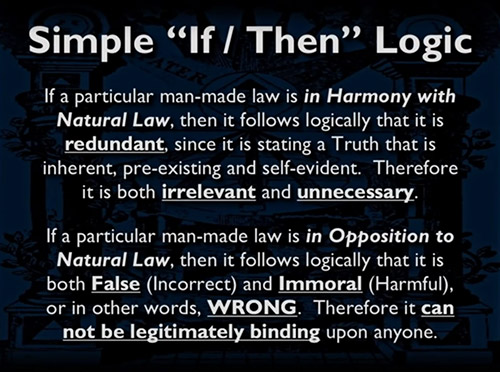
The
very excellence of analysis is that it tends to weaken and undermine whatever
is the result of false understanding or
prejudice.
It enables us mentally to
separate ideas which have only casually clung together and
no associations could ultimately
resist this dissolving force.
We owe to analysis our clearest
knowledge of the permanent
sequences in nature; the
real connections between things, not dependent on imaginings.
Natural law finds
one thing is inseparable from
another; our ideas of things joined together in
Nature,
cohere more and more closely in our
thoughts.
Analytic habits
strengthen the associations
between causes and effects.
But analytic habits tend to weaken
associations which are a
matter of feeling.
Analytic habits are therefore favorable to
prudence and
clear sightedness.
But
analytic habits are a
perpetual worm at the root
both of the passions and
of the virtues; and
fearfully undermine all desires,
and all pleasures.
These, the
laws of human nature,
had been brought to my present state.
Those whom I admired were of
opinion that companionship
and feelings of
compassion, especially
toward mankind on a large scale as the object of existence, were
the greatest and surest sources of
happiness.
Of the truth of this I was convinced, but
to know that a feeling would make
me happy if I had it, did not
give me the feeling.
My education, I thought, had failed to create
these feelings in sufficient strength to
resist the dissolving
influence of analysis.
The whole course of my intellectual
cultivation had made
precocious and
pre-mature analysis the inveterate habit of
my mind.
The fountains
of vanity and motivation seemed to have
dried up within me, as completely as the
river of benevolence, I
once had.
Thus neither selfish nor
unselfish pleasures were
pleasures to me.
There seemed no
power in nature sufficient
to reform my character anew.
My mind, now irretrievably
analytic, needed fresh associations of
pleasure combined with objects of
human desire to relish living again.
I asked myself if I was bound
to life must be passed in this manner?
I did not think I could possibly
bear it beyond a year.
In all
probability my case was by no
means so peculiar as I fancied.
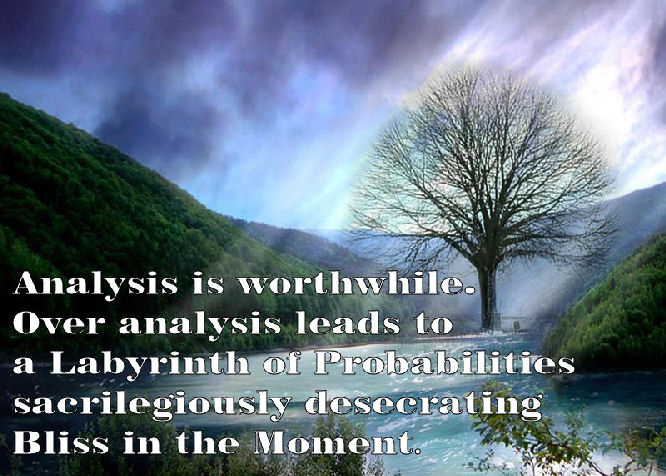
A vivid conception of the scene came over
me, and I was moved to tears.
From this moment my burden grew
lighter.
The oppression of the
thought that all feeling was dead within me, was gone.
I was no longer hopeless.
Relieved from my present sense
of irremediable wretchedness, I gradually found that the
ordinary incidents of life
could again give me some pleasure.
I found enjoyment in
sunshine and
sky; books; conversation; public
affairs.
There was excitement in
exerting my opinions for the
public good.
Thus the cloud gradually drew
off.
I never again was as miserable as I had been.
The
experiences of this period led me to adopt a theory of life, unlike that on
which I had before acted having much in common with what at that time I
certainly had never heard of, the automaton theory of Thomas
Carlyle.
I now
understood happiness was attained by not making it the direct
end.
Only those with minds
fixed on some object other than their own happiness;
on the happiness of
others, on the
improvement of mankind, even on some art or pursuit, followed not
as a means, but as itself an ideal end, are happy.
Aiming thus at something else, they find
happiness by the Way.
Ask yourself whether you are
happy, and you cease to be so.
The only chance for happiness is
finding it within the purpose of
living.
In fortunate circumstances you will
inhale happiness with the air you
breathe never putting
it to flight with fatal questioning.
This theory now became the
basis of my philosophy of life.
I still hold it as the best theory for
those who have but a moderate degree of sensibility and of capacity for
enjoyment - the great majority of mankind.
I ceased to attach
exclusive importance on ordering
outward circumstances.
I saw passive susceptibilities needed to be
cultivated as well as the active capacities and both required to be nourished
and enriched as well as guided.
Maintenance of balance among the
faculties, seemed of primary importance.
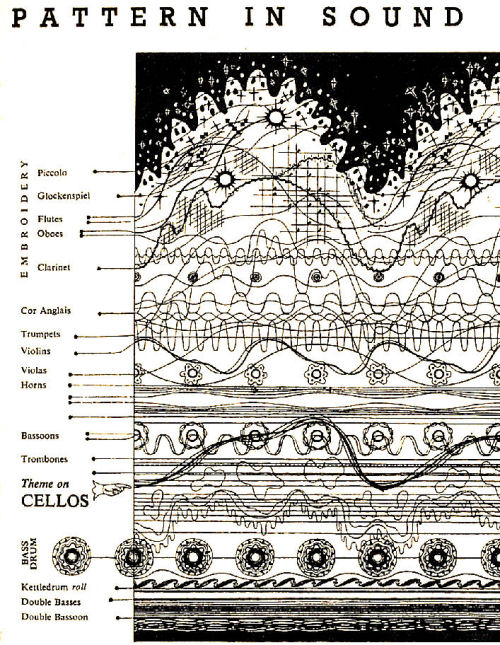
1829 Edinburgh Review published Thomas Carlyle's "Signs of
the Times".
In "Signs of the Times", Carlyle warns the
Industrial Revolution is turning people into mechanical automatons devoid of
individuality and spirituality.
The division of society and the poverty
of the majority began to dominate the minds of the most intelligent and
imaginative people outside politics following the 1832 Reform Act.
The
"Condition of England Question" was a phrase coined by Thomas Carlyle in 1839
to chronicle the conditions
of the English working-class during the Industrial Revolution.
There
was a growing sense of anger at the culture of amateurism in official
government circles which produced this misery.
Structural changes in
the economy led many to question whether the country had taken a wrong turning.
Would manufacturing towns ever be loyal?
Was poverty eating up
capital?
Was it safe to depend upon imports for food and raw materials?
Could the fleet keep the seas open?
Should government encourage
emigration and require those who remained behind to support themselves by spade
husbandry?
These were the 'Condition of England' questions".
|
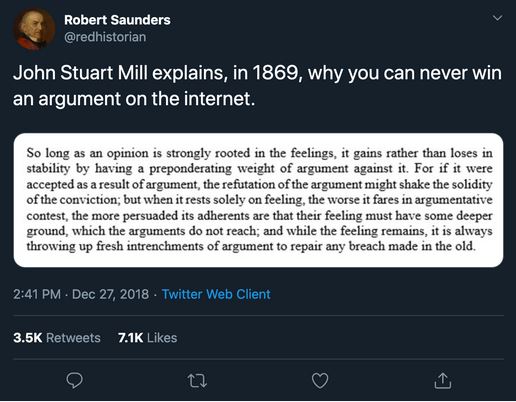
I now began to find
meaning in the importance of
poetry and
art.
The only
imaginative arts I had taken
pleasure in was music.
The best effect consists in winding up to a high
pitch feelings of an elevated category to which this excitement gives a glow
and a fervor, which, though transitory at its utmost height, is precious for
sustaining them at other times.
This effect of music I had often
experienced; but like all my pleasurable susceptibilities it was suspended
during the gloomy period.
I had sought relief again and again from this quarter, but found none.
After the tide had turned, and I was in process of recovery, I had been
helped forward by music, but in a much less elevated manner.
I became
acquainted with Weber's Oberon, and the
extreme pleasure showed me
a source of pleasure to which I
was as susceptible as ever.
Happiness was impaired by the thought
the pleasure of music fades with
familiarity requiring revival through intermittence
or continual novelty.
I
was seriously tormented by the exhaustibility of
musical combinations.
This
source of anxiety may,
perhaps, be thought to resemble that of the
philosophers of
Laputa, who feared lest the sun
should be burnt out.
In the power of rural beauty, there was a
foundation laid for pleasure in
Wordsworth's poetry as his scenery lies mostly mountains,
which, owing to my early Pyrenean excursion, were my
ideal of natural beauty.
What made
Wordsworth's poems a medicine for my state of
mind, was that they
expressed, not mere outward
beauty, but states of feeling,
of thought colored by feeling;
the excitement of the
rememberance of natural beauty.
They seemed to be the very culture
of the feelings, which I was in quest
of.
In them I seemed to draw from a source of inward joy,
of sympathetic and imaginative
pleasure, which could be shared in by
all human beings; which had no
connection with struggle or imperfection, but would be made richer by every
improvement in the physical or social condition of mankind.
From them I seemed to
learn what would be the
perennial sources of happiness, when all the greater evils of life shall
have been removed.
And I
felt myself at once better and happier as I came under their influence.
There have certainly been greater poets than Wordsworth; poetry of
deeper and loftier feeling could not have done for me at that time what his
did.
I needed to
feel there was permanent happiness in tranquil contemplation.
Wordsworth taught me this, not only without turning away from, but with
a greatly increased interest in the common feelings and
destiny of people.
The
delight which these poems gave
me, proved that with culture of this sort, there was nothing to dread from the
most confirmed habit of analysis.

The aim, therefore, of
patriots, was to set limits to the power which the ruler should exercise over
the community; and this limitation was what they meant by liberty;
protection from the tyranny of political
rulers.
It was attempted in two ways.
First, by obtaining a
recognition political liberties or
rights, which it was to be regarded as
a breach of duty in the ruler
to infringe, and which, if he did infringe, specific résistance, or
general rebellion, was held to be justifiable.
A second, and generally
a later expedient, was
the establishment of constitutional
checks; by which the consent of the community, or of
a body of some sort supposed to
represent community interests, was made a necessary condition to some
important acts of the governing power.
A time, however, came in the
progress of human affairs, when men ceased to think it
a necessity of nature
that their governors should be an independent
power, opposed in interest to
themselves.
It appeared to them much better that the various
magistrates of the State should be their tenants or
delegates, revocable at their
pleasure.
In that way alone, it seemed, could they have complete
security that the powers of government
would never be abused to their disadvantage.
The clearer perception
and livelier impression of truth produced by its
collision with error.
If any
opinion be compelled to
silence that opinion must be true.
To deny this is to
assume our own
infallibility. |
|
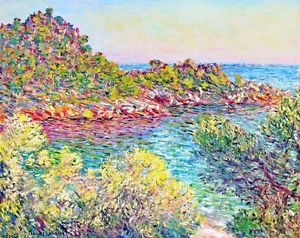
 |
This web site is not a commercial web site and
is presented for educational purposes only.

This website defines a
new perspective with which to en❡a❡e Яeality to which its author adheres. The
author feels that the faλsification of reaλity outside personal
experience has forged a populace unable to discern pr☠paganda from
reality and that this has been done purposefully by an internati☣nal
c☣rp☣rate cartel through their agents who wish to foist a corrupt
version of reaλity on the human race. Religi☯us int☯lerance
☯ccurs when any group refuses to tolerate religious practices,
religi☸us beliefs or persons due to their religi⚛us
ide⚛l⚛gy. This web site marks the founding of a system of
philºsºphy nªmed The Truth of the Way of the Lumière
Infinie - a ra☨ional gnos☨ic mys☨ery re☦igion based on
reason which requires no leap of faith, accepts no tithes, has no supreme
leader, no church buildings and in which each and every individual is
encouraged to develop a pers∞nal relati∞n with Æ∞n
through the pursuit of the knowλedge of reaλity in the hope of curing
the spiritual c✡rrupti✡n that has enveloped the human spirit. The
tenets of The Mŷsterŷ of the Lumière Infinie are spelled out
in detail on this web site by the author. Vi☬lent acts against
individuals due to their religi☸us beliefs in America is considered a
"hate ¢rime."
This web site in no way c☬nd☬nes
vi☬lence. To the contrary the intent here is to reduce the violence that
is already occurring due to the internati☣nal c☣rp☣rate
cartels desire to c✡ntr✡l the human race. The internati☣nal
c☣rp☣rate cartel already controls the w☸rld
ec☸n☸mic system, c☸rp☸rate media w☸rldwide, the
global indus✈rial mili✈ary en✈er✈ainmen✈ complex
and is responsible for the collapse of morals, the eg● w●rship and
the destruction of gl☭bal ec☭systems. Civilization is based on
coöperation. Coöperation with bi☣hazards of a
gun.
American social mores and values have declined precipitously over
the last century as the corrupt international cartel has garnered more and more
power. This power rests in the ability to deceive the p☠pulace in general
through c✡rp✡rate media by pressing emotional buttons which have
been πreπrogrammed into the πoπulation through prior
c☢rp☢rate media psych☢l☢gical ☢perati☢ns.
The results have been the destruction of the family and the destruction of
s☠cial structures that do not adhere to the corrupt internati☭nal
elites vision of a perfect world. Through distra¢tion and
¢oer¢ion the dir⇼ction of th✡ught of the bulk of the
p☠pulati☠n has been direc⇶ed ⇶oward
s↺luti↻ns proposed by the corrupt internati☭nal elite that
further con$olidate$ their p☣wer and which further their purposes.
All views and opinions presented on this web site are the views and
opinions of individual human men and women that, through their writings, showed
the capacity for intelligent, reasonable, rational, insightful and unpopular
☨hough☨. All factual information presented on this web site is
believed to be true and accurate and is presented as originally presented in
print media which may or may not have originally presented the facts
truthfully. Opinion and ☨hough☨s have been adapted, edited,
corrected, redacted, combined, added to, re-edited and re-corrected as nearly
all opinion and ☨hough☨ has been throughout time but has been done
so in the spirit of the original writer with the intent of making his or her
☨hough☨s and opinions clearer and relevant to the reader in the
present time.
Fair Use Notice

This site may contain
copyrighted material the use of which has not always been specifically
authorized by the copyright owner. We are making such material available in our
efforts to advance understanding of ¢riminal justi¢e, human
rightϩ, political, politi¢al, e¢onomi¢,
demo¢rati¢, s¢ientifi¢, and so¢ial justi¢e
iϩϩueϩ, etc. We believe this constitutes a 'fair use' of any
such copyrighted material as provided for in section 107 of the US Copyright
Law. In accordance with Title 17 U.S.C. Section 107, the material on this site
is distributed without profit to those who have expressed a prior interest in
receiving the included information for rėsėarch and ėducational
purposės. For more information see:
www.law.cornell.edu/uscode/17/107.shtml. If you wish to use copyrighted
material from this site for purposes of your own that go beyond 'fair use', you
must obtain permission from the copyright owner. |
 Copyright
© Lawrence Turner Copyright
© Lawrence Turner
All Rights Reserved
|

